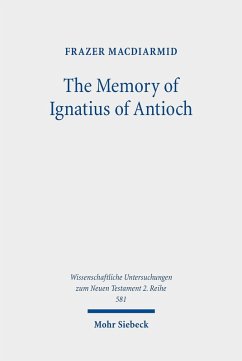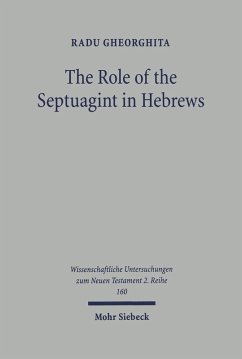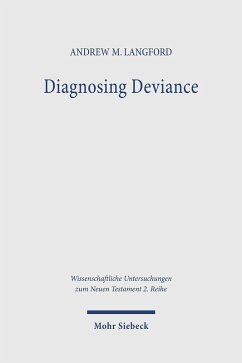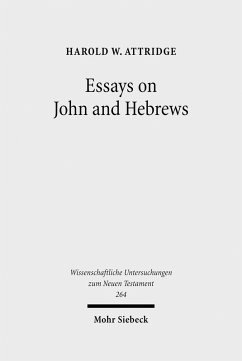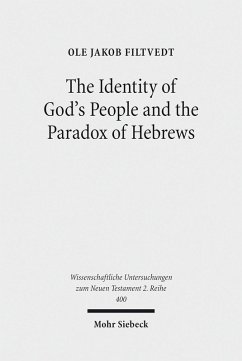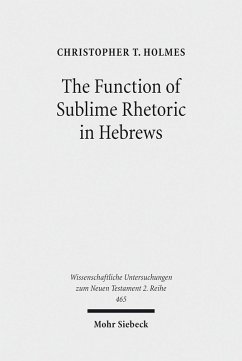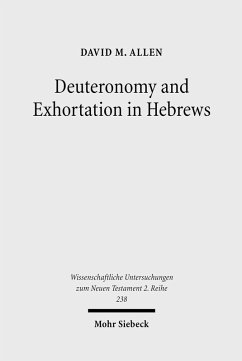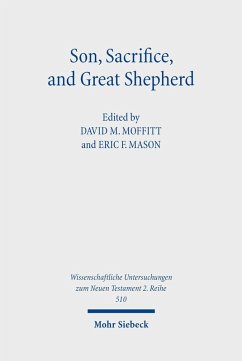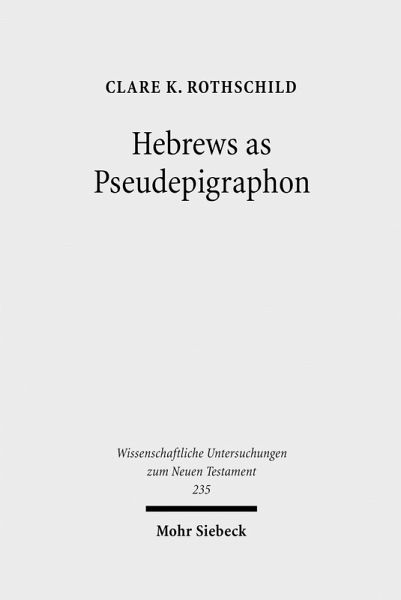
Hebrews as Pseudepigraphon (eBook, PDF)
The History and Significance of the Pauline Attribution of Hebrews

PAYBACK Punkte
0 °P sammeln!
The history of scholarship on Hebrews attests a tension between the originality and Pauline character of its epistolary postscript (13:20-25). Generally speaking, scholars accepting the postscript's originality reject its Pauline character, while those rejecting its originality accept its reliance on Paul's letters. The Pauline character of the postscript is especially problematic for implying Paul's authorship of the book-a thesis that is all but dispensed with today. Clare K. Rothschild argues that if Hebrews's postscript is both original and imitative of Paul's letters, and if such imitatio...
The history of scholarship on Hebrews attests a tension between the originality and Pauline character of its epistolary postscript (13:20-25). Generally speaking, scholars accepting the postscript's originality reject its Pauline character, while those rejecting its originality accept its reliance on Paul's letters. The Pauline character of the postscript is especially problematic for implying Paul's authorship of the book-a thesis that is all but dispensed with today. Clare K. Rothschild argues that if Hebrews's postscript is both original and imitative of Paul's letters, and if such imitation on the part of the author of Hebrews deliberately identifies the author as Paul, the entire book of Hebrews merits consideration as a pseudepigraphon. Examining Hebrews from this perspective, Rothschild makes the case that neither the postscript nor the rest of Hebrews was composed de novo. Rather, it deliberately adopts words and phrases-including citations from the Jewish scriptures-from a collection of Pauline materials, in order to imply Paul's authorship of a message that stands in continuity with esteemed Pauline traditions. Furthermore, the longstanding tradition of Hebrews's Pauline attribution suggests that it never circulated independently of other works attributed to Paul but was composed to amplify an early corpus Paulinum. This is the first ever monograph to examine the history of Hebrews' Pauline attribution and the significance of this attribution for our understanding of the book and its author's indebtedness to Pauline traditions. Born 1964; 1986 BA University of California, Berkeley; 1992 MTS Harvard University; 2003 PhD University of Chicago; 2006 postdoctoral fellow Alexander von Humboldt Foundation at Ludwig-Maximilians-Universität München; currently Professor of Scripture, Department of Theology, Lewis University (USA) and Professor Extraordinary, Department Ancient Studies at Stellenbosch University (South Africa).
Dieser Download kann aus rechtlichen Gründen nur mit Rechnungsadresse in A, B, BG, CY, CZ, D, DK, EW, E, FIN, F, GR, HR, H, IRL, I, LT, L, LR, M, NL, PL, P, R, S, SLO, SK ausgeliefert werden.




